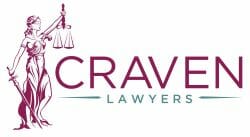VIOLENT OFFENCES QLD
If you have been charged with an offence of violence, it is crucial you seek advice from a criminal law expert. Our expert Brisbane criminal lawyers can assist in advising and representing you in relation to all types of offences of violence. Issues with violent offences can be “who did it?” and “what happened?”. Our Brisbane criminal lawyers perform a close analysis of the accounts provided by eye witnesses and the other evidence relied upon by the Prosecution to prove the offence.
Call us today on 1800 LAW 000 (1800 529 000) for your first free consulation with one of our Brisbane Criminal Lawyers.
Below are examples of some of the types of offences of violence our criminal lawyers can represent and advise you about.
CONTACT US TODAY FOR A FREE CONFIDENTIAL CHAT 1800 529 000 OR FILL OUT THE FORM .
We’re Ready To Help You And Fight For Your Case Now!
Grievous bodily harm (GBH)
What does the Prosecution have to prove beyond reasonable doubt?
(1) The defendant did grievous bodily harm to the complainant.
(2) The grievous bodily harm was done unlawfully (this means it was not authorised, justified or excused at law).
What is grievous bodily harm?
Grievous Bodily Harm is defined as: –
(1) the loss of a distinct part or an organ of the body; or
(2) serious disfigurement; or
(3) any bodily injury of such a nature that, if left untreated, would endanger or be likely to endanger life, or cause or be likely to cause permanent injury to health;
whether or not treatment is or could have been available.
It doesn’t matter if the complainant received treatment for the injury itself. The issue to determine is whether or not the injury itself constitutes grievous bodily harm not taking into account any treatment the complainant receives.
The Law: Section 320 of the Criminal Code (Qld).
Maximum Penalty: 14 years imprisonment.
PLEASE NOTE that: –
(1) If the defendant is a participant in a criminal organisation and unlawfully does grievous bodily harm to a police officer who is acting in the execution of the officer’s duty, the defendant must serve a minimum of 1 year in prison.
(2) If the defendant committed the offence in a public place while the person was adversely affected by an intoxicating substance then the Court must sentence the person to perform community service in addition to any other penalty the Court imposes.
Torture
What does the Prosecution have to prove beyond reasonable doubt?
(1) The defendant inflicted severe pain or suffering (this can be physical, mental, psychological or emotional pain or suffering, whether temporary or permanent) on the complainant. The issue of whether or not the pain or suffering inflicted was severe is a subjective test.
(2) The infliction of the severe pain or suffering (the prosecution must prove an actual, subjective intention on the part of the defendant to cause the severe pain or suffering).
(3) The defendant inflicted the severe pain or suffering on the complainant on one or more occasions.
The Law: Section 320A of the Criminal Code (Qld).
Maximum Penalty: 14 years imprisonment.
Wounding
What does the Prosecution have to prove beyond reasonable doubt?
(1) The defendant wounded the complainant.
(2) The wounding was unlawful (this means it was not authorised, justified or excused at law).
What is wounding?
To constitute wounding, the “true skin” of the complainant must be broken. This means the complainant must have suffered an injury that caused the continuity of the whole skin to be broken or penetrated, not just the cuticle or upper skin.
The Law: Section 323 of the Criminal Code (Qld).
Maximum Penalty: 7 years imprisonment.
PLEASE NOTE that if the defendant committed the offence in a public place while the defendant was adversely affected by an intoxicating substance then the Court must sentence the defendant to perform community service in addition to any other penalty the Court imposes.
WE ARE YOUR BEST DEFENCE
CALL 1800 529 000 NOW FOR EXPERT ADVICE
